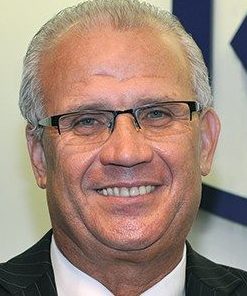Education provider Kaplan Professional is highlighting the importance of existing financial advisers, who do not meet the 10-year experience exemption, having a clear understanding of their individual requirements to meet the 31 December 2025 education deadline.
The company says while it has six study periods every year for its postgraduate financial planning courses, those who need to meet the education deadline only have five study periods (10 months) remaining next year to complete their requirements.
The five study periods for 2025 are:
- Study Period 1 – starts 13 January 2025 (early access available from 16 December 2024)
- Study Period 2 – starts 10 March (early access available from 10 February)
- Study Period 3 – starts 5 May (early access available from 7 April)
- Study Period 4 – starts 30 June (early access available from 2 June)
- Study Period 5 – starts 25 August (early access available from 28 July)

Kaplan says while there is an increased sense of urgency as total subject enrolments for 2024 were at its highest since 2021 “…the fact that consistently over 300 individuals started their studies for the first time in each study period this year, indicates that there is still a lot of study to do (between one to eight subjects) to meet the 31 December 2025 deadline.”
Kaplan’s CEO Brian Knight says the major focus this year has been supporting advisers to meet the deadline and that will remain the same next year.
“There have been large numbers of subject enrolments every study period and the number of enquiries about education pathways and individual requirements has increased significantly.”
…feedback from advisers is that they are keen to avoid a last-minute scramble…
He says the feedback from advisers is that they are keen to avoid a last-minute scramble.
“We are seeing many who are enrolling in multiple subjects per study period or consecutive intakes.”
He says the firm is contacting licensees and individual advisers to advise them about education pathway progress – how many subjects are left to complete and mapping out personalised study plans based on individual circumstances and is looking at the data weekly.
“We are doing everything in our power to support advisers and licensees in the race to the finish – we are putting on more individual tutor sessions for every subject and have a … team in place to support advisers with their education pathway and individual requirements,” he says.
Knight acknowledged that while the surge in enrolments has been largely driven by the looming education deadline, there are also other interesting trends:
- There are still large numbers of new entrants enrolling in postgraduate financial planning courses for the first time in each study period, which he sees as a positive sign for the future of the profession.
- “Now that thousands have met the standard required of them before the deadline, they are not stopping; large numbers are going on to complete the Master of Financial Planning – whether that be to stand out from their peers, interest in specialist elective subjects or to achieve a professional designation with the Financial Advice Association Australia and SMSF Association.”
- The company has also had significant take up of its College for Financial Planning designations – the Accredited Behavioural Finance Professional and Chartered Retirement Planning Counsellor – both of which advisers are able to apply for without any further study if they have completed the Graduate Diploma of Financial Planning (or higher) and are currently listed as active on the FAR.



